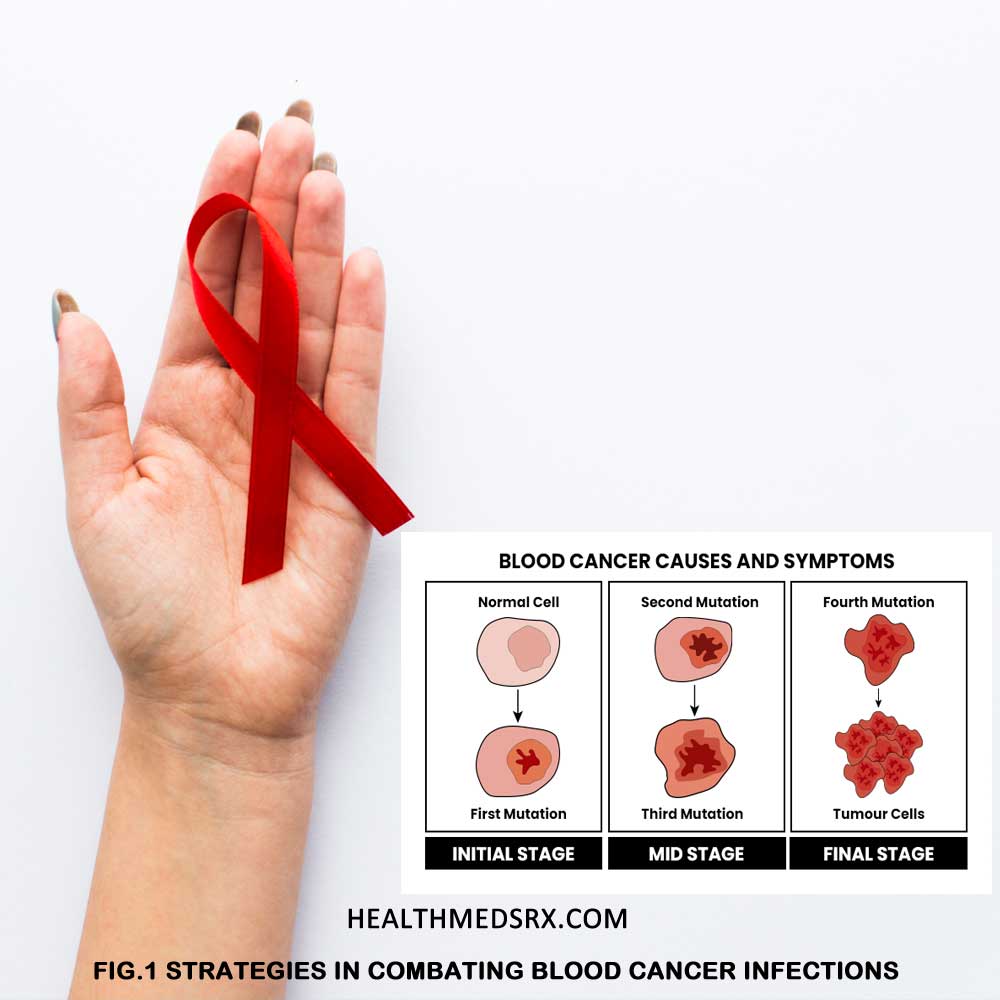Blood cancer is a menacing disease that affects millions of people worldwide and results in untold pain and suffering. Combating this formidable enemy requires a thorough understanding of its deadly effects. Blood cancer develops when the normal growth and function of blood cells are disrupted by abnormalities. These include various types such as leukemia, lymphoma, and myeloma.
The consequences can be far-reaching, affecting not only one’s physical health but also their emotional health and general quality of life. Blood cancer can lead to a weakened immune system, fatigue, weakness and increased susceptibility to infection. Unfortunately, it can also lead to financial difficulties and strained relationships. In our fight against this terrible disease, raising awareness and supporting research is important.
The Role of Prevention in Reducing the Risks
A key factor in reducing blood cancer risk is “Prevention”. It is important to maintain a healthy lifestyle, including exercising regularly, eating a balanced diet high in fruits and vegetables, and avoiding tobacco and excessive alcohol consumption. These habits can strengthen the immune system and improve general health. Equally important is avoiding exposure to known carcinogens such as asbestos, radiation and certain chemicals.
Being aware of your environment and taking precautions can reduce the risk of blood cancer. Increasing people’s knowledge and awareness of these preventive measures is essential to empower them to make informed decisions and protect their health.
The Importance of Regular Health Check-ups and Screenings for Early Detection
Regular health check-ups and screening are important for early detection of blood cancer. These proactive measures can significantly increase the chances of successful treatment and improved outcomes.
- Regular check-ups allow medical professionals to monitor a patient’s overall health, including blood counts and other vital signs. Regular monitoring of these factors allows for early detection of any abnormalities or signs of possible blood cancer.
- In addition, screenings such as blood tests and imaging tests can help detect any abnormalities or cancerous changes in the blood cells. Early detection of blood cancers can lead to prompt intervention and treatment, increasing the patient’s chances of successful recovery.
Regular health check-ups and screenings are essential to identify potential risks and ensure prompt intervention. By highlighting the importance of these preventive actions, people may be more motivated to prioritize their health and take proactive action toward early cancer detection.
Raising Awareness: Spreading Knowledge about Blood Cancer Prevention
Public knowledge about blood cancer prevention needs to be increased to enable people and communities to take preventive action to reduce the risk of this devastating disease. Spreading knowledge about lifestyle changes and preventive actions is essential to encourage healthy habits and early detection. Accurate information about the importance of a healthy lifestyle such as regular exercise, a balanced diet, and avoiding harmful substances such as tobacco and excessive alcohol can be disseminated via community outreach programmes, educational resources, and public health campaigns.
Moreover, educating people about the risks of exposure to carcinogens, such as certain chemicals and radiation, might enable them to take the required measures and make wise decisions. By raising people’s awareness of blood cancer prevention, we can encourage them to prioritise their health, get regular check-ups, and seek early screening, which will ultimately lessen the impact of this illness on both individuals and society at large.
Social Support: Nurturing Emotional Well-being
Social support is crucial to maintain emotional health while fighting blood cancer. Having a solid support network may be incredibly comforting and empowering when dealing with the physical, emotional, and psychological difficulties brought on by this disease. A sense of understanding and validation can be provided by friends, family, and support groups, which can provide a safe area to communicate feelings and worries.
They can also help with daily tasks, offer emotional support, and accompany someone to medical appointments. Counselling and therapy can also help patients and their loved ones in navigating the emotional effects of blood cancer by providing coping mechanisms and a safe environment to process difficult emotions. Being surrounded by caring individuals can lessen feelings of loneliness and promote resilience.
Creating a friendly environment where people feel understood and supported can considerably help in their mental well-being as they deal with the difficulties of blood cancer.
Taking Action Today to Prevent Tomorrow’s Blood Cancers: Empowering Individuals and Communities
Taking action today is essential to empower people and communities and stop blood cancer from occurring in the future. We can enable people to make wise decisions for their health by fostering education and knowledge about risk factors and preventive measures. Supporting healthy lifestyles, educating people about the risks of excessive alcohol and cigarette use, and encouraging balanced diets and frequent exercise can decrease the blood cancers risk.
Additionally, promoting workplace safety, appropriate chemical handling, and lowering carcinogen exposure can improve everyone’s quality of life. Funding for blood cancer prevention programs and efforts is also essential. By working together, we can increase public awareness, take preventive measures at the individual and community levels, and reduce the burden of future blood malignancies. By empowering individuals and communities, we can reduce the incidence of blood cancers and move towards a healthier future.
In conclusion, preventing blood cancer requires a collective effort. We can change things by raising awareness, encouraging healthy lifestyle choices, fighting for safety precautions, and funding research. People and communities should empower themselves to take preventive action against blood cancer. Together, we can create a future where the devastating impact of blood cancer is reduced and people can enjoy happier, healthier lives. Let’s unite in our determination to spread knowledge, support prevention programs and fight for a world free from the ravages of blood poisoning. Together, we can make a significant impact and enhance the lives of countless others.


